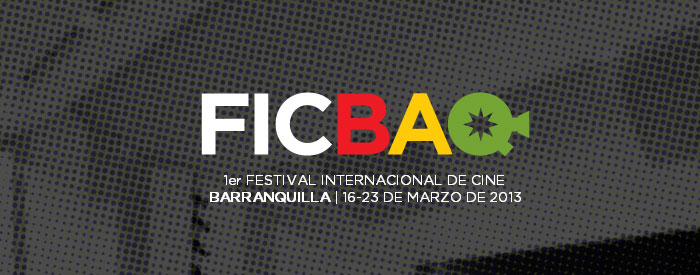
Looking Back at FICBAQ, Barranquilla’s 1st International Film Festival
03 April, 2013With a large focus on Latin American films – especially documentaries – FICBAQ‘s debut was a low key, continually interesting affair, notable as being the first ever international film festival in Barranquilla, a city that culturally feels at the epicentre of Colombia’s Caribbean coast.
After the opening night, a screening of Langosta Azul (an early piece of Colombian surrealism written by Gabriel Garcia Marquez) with a live soundtrack from Malalma, came a week chock-full of cinema with screenings non-stop from 10:30am until midnight each day, all of which were free to the public. It was therefore a shame that only students seemed to know about many of the screenings, with their presence taking up many of the seats.
I naturally gravitated towards the music documentaries being shown each day at Teatro Amira De La Rosa, of which Celso Piña, El Rebelde Del Acordeón was a clear standout. With a huge variety of talking heads it showed how Piña came to love Colombian cumbia and struggled for years to find an audience for it in Monterrey (Mexico) before finally becoming “El Rebelde Del Acordeón” (the rebel of the accordion) and getting accepted by the younger generations for his work on the rock/cumbia album Barrio Bravo. By showing how cumbia made a huge impact in Mexico and then conversely, later, showing how Mexican cumbia and cumbia/rock hybrids had an impact on other countries, it also showed how Piña sat in the international music scene. This was something lacking from La Casa Del Ritmo, a documentary about Venezuela’s Los Amigos Invisibles that does a great job showcasing the band’s history and catalogue but failing to show how the band interacts with the outside world.
El Viaje Del Acordeón was another accordion-themed documentary, this one telling the story of three friends who year after year come within a whisker of winning El Rey Del Vallenato, Colombia’s legendary vallenato festival in Valledupar. After an invitation to enter an accordion festival in Germany arrives they take their first trip outside of Colombia together. Humble, passionate and always making each other laugh, the film’s main protagonists make this a hugely joyful film, especially when the friends encounter snow for the first time in Germany.
Simple rural or indigenous ways of life were the themes of three decidedly different documentaries; Espantapájaros (Scarecrow) was an engaging first person account of a Mexican bird-scarer; Leña (Firewood) was a slow-moving Chilean film showing the entire process it takes for wood to go from the forest to the fireplace (and was as dull as it sounds); and La Semilla Y La Piedra (The Seed And The Stone), which detailed the problems a small community of indigenous Guatemalans have suffered, and continue to face, from both the military and mining companies.
Among the fiction films on show, of which there weren’t many, was Nunchaku, a dark and tense Uruguayan drama; and the Argentinian music-inspired road movie Villegas, which was received well at last year’s Cannes film festival.
For quality of films, as well as the fact that they were all free to watch, it’s hard to have any qualms regarding FICBAQ. Hopefully next year they’ll be able to improve the comfort in a couple of the venues where the wooden chairs were something of a pain in the ass, and they could also improve the amount of information as there was no way of knowing if the films would have subtitles (though many did) or even what language they would be in. Even without these things FICBAQ was definitely worth the visit and it’ll be interesting to see what they come up with next year.
You can find out more about FICBAQ at ficbaq.com
Follow Sounds and Colours: Facebook / Twitter / Instagram / Mixcloud / Soundcloud / Bandcamp
Subscribe to the Sounds and Colours Newsletter for regular updates, news and competitions bringing the best of Latin American culture direct to your Inbox.

